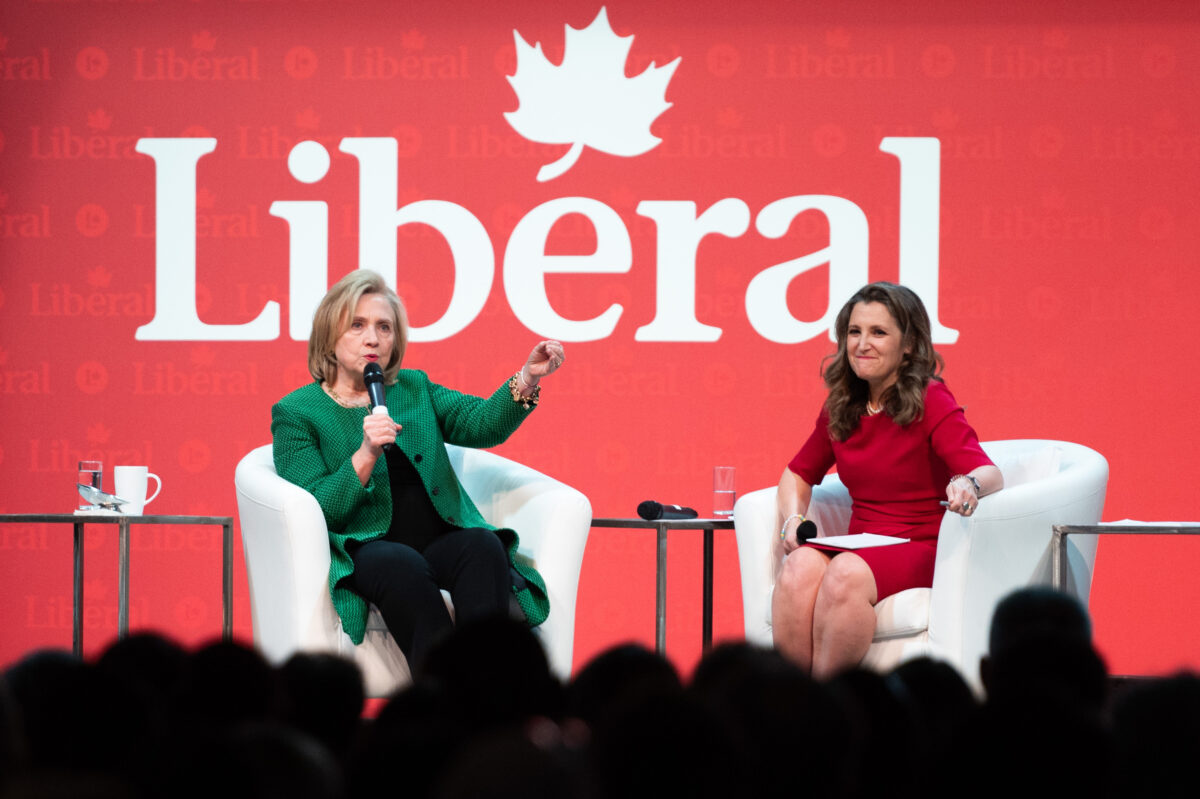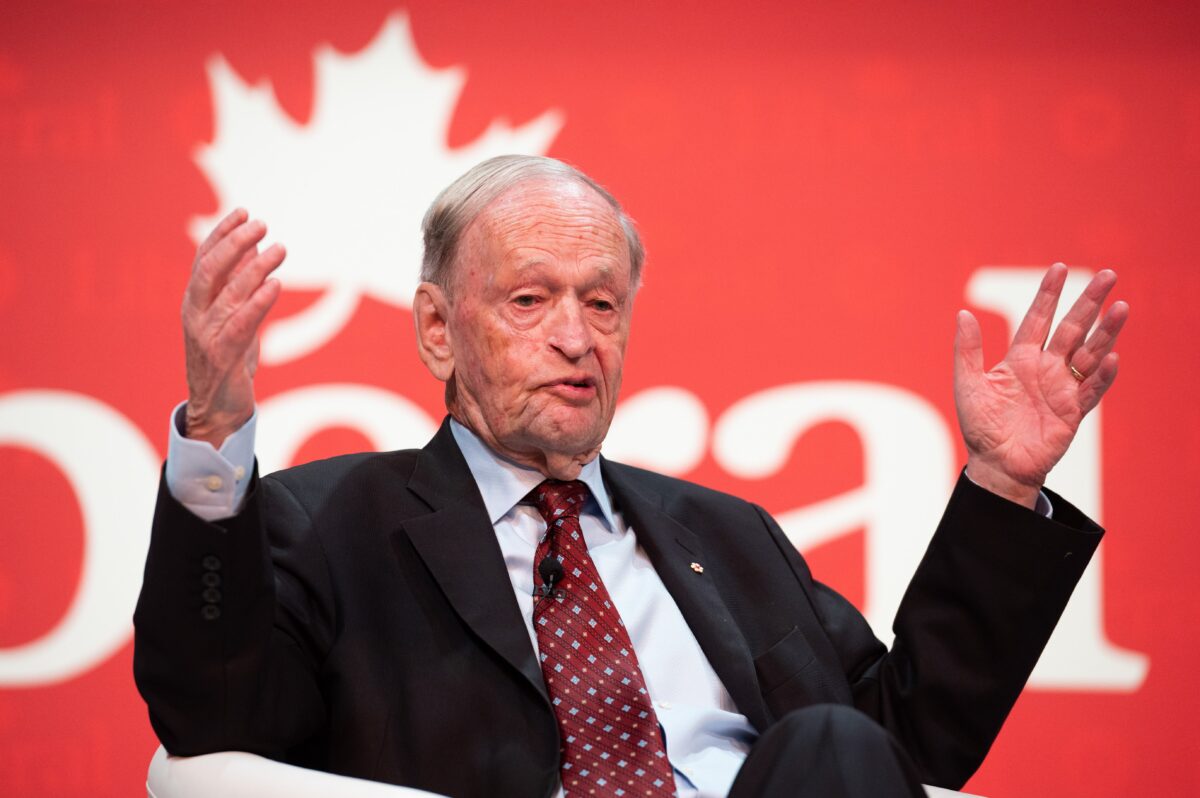


Former U.S. Secretary of State Hillary Clinton described the Liberal government as a “trailbreaker” as she addressed the party’s national convention on May 5, urging for more feminist economic policies, keeping up support for Ukraine, and deterring China’s aggression in the Indo-Pacific region. Former Prime Minister Jean Chrétien, who also delivered his keynote address, took shots at opposition conservatives.
The former U.S. presidential candidate was on stage alongside Deputy Prime Minister and Minister of Finance Chrystia Freeland where she praised the federal Liberals as an “optimistic, progressive, forward-looking party.”
“In many ways, the Liberal Party of Canada is a trailbreaker,” Clinton said in front of 3,500 attendees at the Shaw Centre in downtown Ottawa. She was referring to the national child care policy launched by the minority government that set the cost of child care to $10 a day.
“It’s important in today’s political world to get out there and make sure people know what you’ve done. Ten dollars a day for childcare? That’s extraordinary,” she said. “I think the idea of a feminist set of policies, a feminist economic policy, is exactly where you need to be if you want to increase economic opportunity and economic output.”
Clinton’s comment was welcomed by Freeland, who stressed that Justin Trudeau is “a truly feminist prime minister” and that his government believes that “feminist policy is economic policy.”
The conversation shifted to the conflict between Russia and Ukraine when the minister asked Clinton what it means to support the latter.
“We have to continue to provide as much military support to Ukraine,” Clinton replied. “I wish we would speed up the delivery of everything that they need.”
The U.S. diplomat said Russia’s current invasion of Ukraine happened because the world didn’t do enough to respond when they did it before. She cited the case of Georgia when Russian President Vladimir Putin invaded it in 2008, followed by his first invasion of Ukraine in 2014.
“You know, we all sanctioned him, we gave speeches about it, we expressed our absolute opposition, but nobody really did much. Think of the lesson Putin took from that.”
Clinton said the best way to “end Putin’s aggression” is “for Ukraine to win.”
“Ukraine’s fight for freedom and against Russian aggression is our fight. It is not just their fight,” she said.
A failure to stop Russia, however, would be “disastrous … in terms of unleashing Chinese aggression” toward Taiwan and countries in the Indo-Pacific region, according to the diplomat.
“The South Korean president was just in Washington. Australia now is going to get nuclear submarines. The relationship between Japan, Australia, India, [and] the United States is … trying to figure out how strategically to prevent China from continuing to be aggressive in the Pacific,” Clinton said.
Freeland agreed and said it’s not just about Russia.
“The single strongest message of deterrence we can send to China is a decisive Ukrainian victory,” the minister said. “That is the message that says to all the world’s dictators, ‘You know what, democracy is prepared to fight back and democracy can actually win.’”
Prior to Clinton’s keynote address, Chrétien took the stage and took aim at Conservative Leader Pierre Poilievre, who has been critical of the Trudeau government.
Speaking in French, Chrétien said Poilievre’s outlook is “negative.”
“No, Mr. Poilievre, Canada is not broken,” he said. “Canada is the land that makes the envy of the world. Canada is still the best. And vive le Canada!”
The 89-year-old who was first elected in 1963, and became prime minister in 1993, recounted tales of his time in office and the legacies various Liberal governments have left behind.
Medicare, official language rights, gun control laws, and the legalization of same-sex marriage were highlighted among several more.
“We did these because of our values,” he said.
The Canadian Press contributed to this report.

